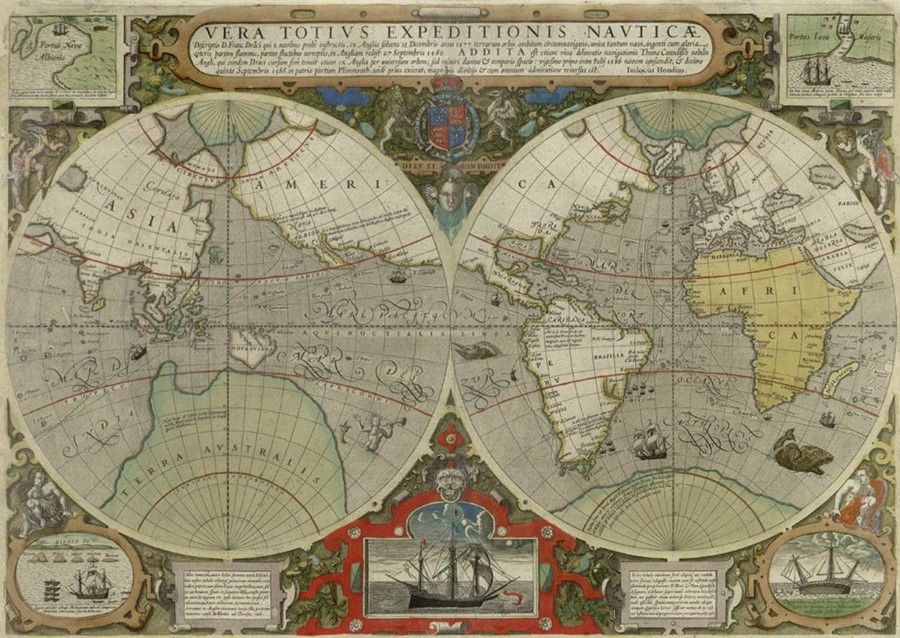Summary
One of my favourite pages on the entire internet is this one, on which someone has gone to the trouble of transcribing the complete and unabridged lyrics to Daft Punk's 1997 single “Around the World” – which consist of the words “around the world” repeated 144 times. It's not only an indispensable reference text but also a reminder that the very act of circumnavigation, like the launch of space shuttles, has descended from sensation into monotony. There have been so many gimmicky voyages now that it must be almost impossible to come up with something novel enough to get yourself into the Guinness Book of Records. Around the world on a forklift, for charity? Around the world drunk, for science?
It wasn't always like this. In 1580, when Sir Francis Drake completed the first English circumnavigation, he didn't do it for circumnavigation's sake: it just happened that pushing on westward from America was truly the simplest way to get home. On this 36,000 mile trip, he lost barely any crew to scurvy, which had tormented Magellan's prior expedition, and he arrived home in Plymouth with £600,000, which at the time was enough to pay the bill for seven full years of warfare, making his investors a profit of 4,700 per cent. Pretty good. Afterwards, he was so famous that King Henry III of France had copies of Drake's portrait made for his courtiers, which they presumably stuck up on their bedroom walls and kissed when no one was looking.
By 1889, though, circumnavigation had become the clanking publicity generator we know today. The awesome journalist Nellie Bly – who, like Drake, died on today's date – first made her name by faking insanity to get herself committed to a New York madhouse so she could experience the awful conditions firsthand. Soon afterwards, she was commissioned by Joseph Pulitzer's New York World to match the fictional feat in Jules Verne's Around the World in 80 Days. It was a cheap, long-running story of the kind newspapers love, and even on the days when they didn't get a suspenseful despatch from Bly, the World could print a story about all the offers of marriage she was receiving care of their office. On her way through France, Bly met Jules Verne himself, and although they had no language in common they apparently got on well – if anything, Bly's account of it sounds a bit flirtatious. And after she completed her voyage in only 72 days, he sent a telegram to her newspaper: “'NEVER DOUBTED NELLIE BLY'S SUCCESS. HER FEARLESSNESS MADE THAT EVIDENT. HURRAY FOR HER AND FOR THE PUBLISHER OF THE WORLD. HURRAY! HURRAY!” When a film is made about Bly, I think it's pretty obvious what song will be playing when that telegram gets read out.
Ned Beauman used to be Commissioning Editor at Another Man, writes often for Dazed & Confused and has contributed to the Guardian, the Financial Times, and many other publications. His debut novel Boxer, Beetle will be published by Sceptre in August 2010
